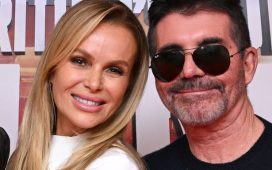
Younger voters are putting questions to representatives from the main parties in a debate being shown on BBC One, Radio 1, 1Xtra and 5live.
The debate which is taking place in York, will last 90 minutes, and is being hosted by the BBC presenter Emma Barnett.
An audience of 18-30-year-olds has been selected to reflect how people of all ages in the country have voted.
The UK goes to the polls in three days on Thursday 12 December.
Sitting on the panel are:
- Conservative Housing Secretary Robert Jenrick
- Labour’s shadow education secretary Angela Rayner
- Liberal Democrat leader Jo Swinson
- SNP Justice Secretary in the Scottish government Humza Yousaf
- Plaid Cymru leader Adam Price
- Green Party co-leader Jonathan Bartley
- Brexit Party leader Nigel Farage
The first question came from Catrin Ellis who asked how her voice could be heard when she lives in a safe seat constituency.
Mr Farage said the voting system was “wrong” pointing out that his former party, UKIP, won nearly four million votes but only one seat in the 2015 election.
Ms Swinson said she would “love” to see a voting system where “your vote would count no matter where you are” and added “the very concept of a safe seat” was “a broken part of our politics”.
On Brexit, Ms Rayner said in another referendum she would vote to leave the EU if “we get a deal that protects jobs and the economy”. Labour has said that, if elected, it would renegotiate a new Brexit deal which would then be put back to the country in a referendum along with an option to remain in the EU.
Mr Price, whose party wants another referendum, argued that “the people are entitled to change their mind”. He said “the opinion polls show a shift” in opinion but added that “only the people can end the impasse”.
Asked if he took responsibility for the instability in politics in the years since the referendum, Mr Jenrick said he wished “we had managed to get Brexit done a long time ago” adding that Parliament had blocked the process.
He said it was “absolutely essential” to implement the result of the vote.
Mr Yousaf said Scotland was the only nation “to get shafted” in the wake of Brexit. He argued that England and Wales voted to Leave, while Northern Ireland who voted to Remain would get a “differentiated deal”.
The debate became particularly heated over a poster on immigration Mr Farage unveiled during the 2016 Brexit referendum.
Ms Rayner told the Brexit Party leader to “stop peddling hate in our country”. Mr Farage hit back accusing the Labour politician of “bile and prejudice”.
‘Trust’
The panellists were also asked about how they would improve trust in politics.
Mr Price said he would introduce a bill to “make lying by politicians a criminal offence” while Mr Farage promised to tackle postal vote fraud and abolish the House of Lords.
“I won’t lie and I’ll call out the people who do,” replied Ms Rayner.
Mr Jenrick vowed to “deliver the outcome of the referendum” while Ms Swinson said she would “stick to my principles” on Brexit “whether it is popular or not”.
Mr Yousaf said his party would “fulfil the promise of the manifesto we stood on”.
And Mr Bartley proposed lifting “the ceiling on the fines” that can be implemented by the Electoral Commission.
Young people make up a big share of non-voters in the UK – the British Election Study estimates that between 40-50% of those aged 18 to their mid-20s voted in 2015 and 2017 compared with about 80% of voters aged in their 70s.
Polling expert Sir John Curtice says age is “the division that nowadays lies at the heart of British party politics and will play a significant role on 12 December”.
The televised discussion comes on a day in which the campaign has been dominated by debate of the NHS and Prime Minister Boris Johnson’s initial refusal to look at an image of a sick child on the floor of an overcrowded hospital.
Elsewhere Labour’s John McDonnell sets out what it would do in its first 100 days in government and Jo Swinson has defended her stance on extending transgender rights.
Follow election night on the BBC
- Watch the election night special with Huw Edwards from 21:55 GMTon BBC One, the BBC News Channel, iPlayer
- As polls close at 22:00, the BBC will publish an exit poll across all its platforms, including @bbcbreaking and @bbcpolitics
- The BBC News website and app will bring you live coverage and the latest analysis throughout the night
- We will feature results for every constituency as they come in with a postcode search, map and scoreboards
- Follow @bbcelection for every constituency result
- From 21:45 GMT, Jim Naughtie and Emma Barnett will host live election night coverage on BBC Radio 4, with BBC Radio 5 live joining for a simulcast from midnight














